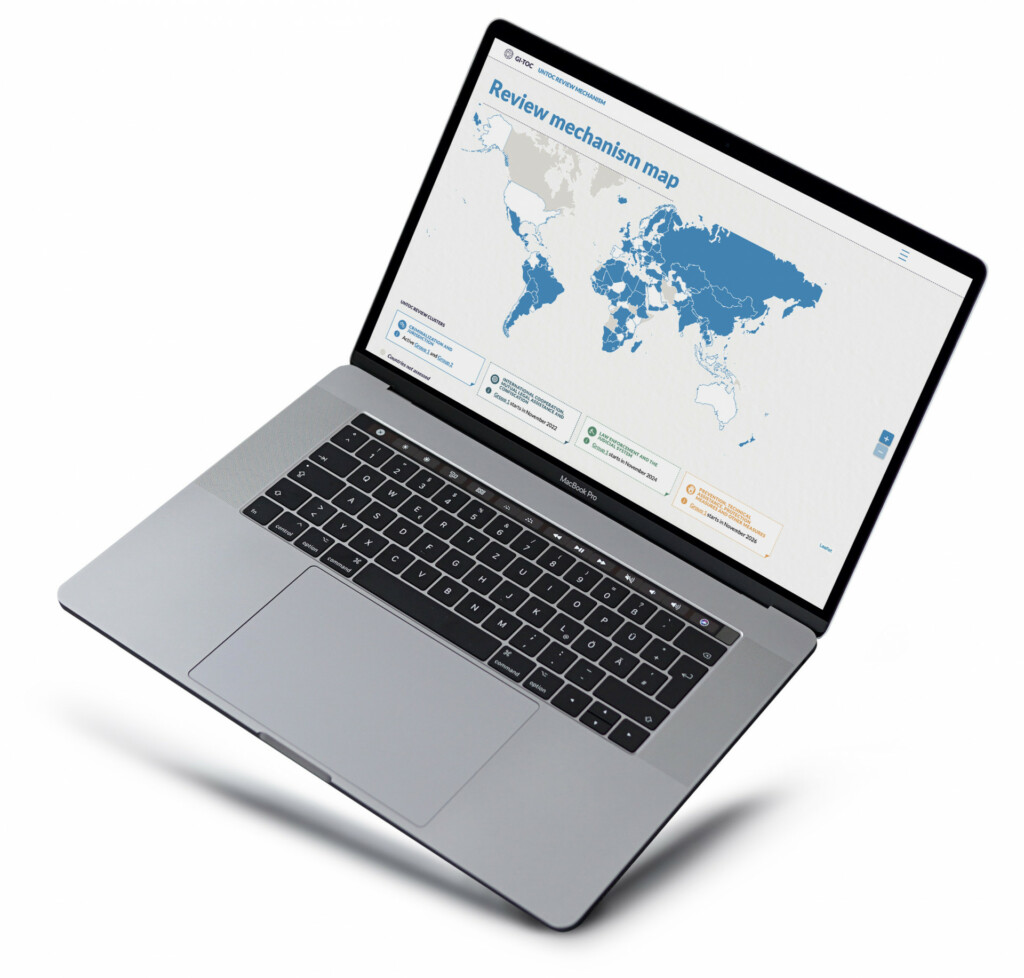Posted on 25 Jul 2023
Canada has become the first country in the world to publish its responses to the self-assessment questionnaire for the United Nations Convention Against Transnational Organized Crime (UNTOC) and the Protocols Thereto. The self-assessment questionnaire forms the basis on which countries are reviewed by their peers, who provide their own comments before a jointly agreed list of ‘observations’.
For the review cluster 1 – criminalization and jurisdiction – Canada’s 37 page submission has been provided to Canada’s reviewers, New Zealand and Djibouti, and posted online on the UNODC website here.
This government submission follows the first ever civil society-led report on national level UNTOC implementation, published by the International Centre for Criminal Law Reform (ICCLR) titled ‘The implementation and impact in Canada of the United Nations Convention Against Transnational Organized Crime and its Protocols: Civil society inputs on cluster I of Canada’s UNTOC review’. The report was published in 2022 and is available here.
In its note submitted to the UNODC requesting the publication of its responses, the government of Canada acknowledges the importance of the ICCLR report and civil society engagement in the implementation of UNTOC more generally.
Initially envisaged to start in December 2020, this first phase of the mechanism for the first group of 62 countries selected (two other groups started in the subsequent years) had a shaky start, with many countries falling behind schedule and, as of today, no reviews have reached completion. The tardiness in the review process has been caused by delays in countries reaching important turning points, and compounded by insufficient transparency on country-review processes, funding constraints and restricted civil society engagement. Delay-inducing hitches include countries not nominating official focal points, or changing focal points, as well as requests to change review partner countries.
This will be a decade-long process at a minimum, but given the delays, it will invariably take longer, as the most recent information from the UNODC at the UNTOC Constructive Dialogues on Technical Assistance in May noted that 28% of reviews, or 29 country reviews, are active, while as many as 72% are inactive. Put another way, the three country groups are still a long way from reaching the 70% completion rate required to move to the next review cluster.
The delays in the timeline are being discussed in working groups and the UNTOC Conference of the Parties. But no definitive solutions have yet emerged. And states are not yet asking themselves bigger questions about what these delays mean for the strength of political will devoted to the success of the review mechanism, and for international cooperation against organized crime more generally.
Although the UNTOC Review Mechanism is mostly an intergovernmental process, as evidenced in the ICCLR report civil society can be invaluable in monitoring its implementation. Participation of civil society takes the form of capacity building, technical assistance and international cooperation.
To this end, the Global Initiative Against Transnational Organized Crime has developed the UNTOC Hub, a platform where civil society can access data on how to participate in the mechanism. It includes information about the review process, review clusters, reports, how civil society can engage with the UNTOC Review Mechanism and support through FAQs. The tools available in the hub include a review mechanism map, civil society questionnaires and a calendar of key events.
 Canada’s publication of civil society and country reports on the criminalization and jurisdiction cluster of the country’s responses to the UNTOC self-assessment questionnaire provides a beacon of hope amid a sea of delays in the review mechanism. It should be an inspiration for other countries to emulate, in that it shows how – when civil society and governments work together – assessments can be made about how states are implementing the UNTOC and the protocols they committed to, and how implementation shortcomings can be tackled and resolved through technical assistance and capacity building.
Canada’s publication of civil society and country reports on the criminalization and jurisdiction cluster of the country’s responses to the UNTOC self-assessment questionnaire provides a beacon of hope amid a sea of delays in the review mechanism. It should be an inspiration for other countries to emulate, in that it shows how – when civil society and governments work together – assessments can be made about how states are implementing the UNTOC and the protocols they committed to, and how implementation shortcomings can be tackled and resolved through technical assistance and capacity building.



